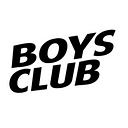Well first of all, what is web3?
web1 (~1990 to early 2000s) was just information websites. The most you could do here was order a book from a small online bookstore called Amazon. web2 is what we use today. It’s overall easier to navigate, interact with and is available on smartphones — leading to the creation of companies like Uber or Airbnb. web3 is the next generation of what we know as the internet.
web3 is all about taking the interaction of web2 and letting that translate into ownership. The underlying technology is the same blockchain technology behind cryptocurrencies, and the result is that proving and assigning ownership is not only possible, but easy. For you as a creator, that means you can own the rights to what you create on the internet (music, art, podcasts, articles etc). For you as a loyal user or supporter of businesses, brands and creators, you have the opportunity to own part of the potential upside that may come from the overall success of those you support. The possibility of ownership through web3 adds a new incentive structure for customers and users.
Here are just some examples of what ownership can look like, as a customer or user:
- Digital perks for fans of creators: Suppose you got a homemade CD from Taylor Swift back when she was singing for the high school talent show. That CD is probably worth a lot today. Now suppose Taylor Swift released digital copies of CDs or limited edition digital art and you got one. As her stardom grows, so does the value of your digital copy. Or suppose she released Taylor Tokens. If you own a certain amount you can get private access to perks reserved for her super fans. Back in 2005 these would have been cheap tokens, but man would these be expensive today. Or maybe instead of Scooter Braun owning Taylor’s masters, you as a fan could purchase ownership rights to catalogs and songs. The possibilities are endless and you as a fan are incentivized to discover creators, athletes, teams etc. early and support them continually.
- Ownership tokens for early adopters: Suppose you become an early customer of a new brand or business and tell all your friends about it. Sure maybe the company will give you an extra $10 for referring a friend, but if that company blew up in the next year the company is worth a lot more than $10. web3 allows for you as an early adopter to get ownership tokens that either represent actual underlying equity ownership or the ability to vote on measures. This works for businesses and for marketplaces, so for example if you decide to join a job marketplace as a cleaner, the more jobs you take the more tokens you get in addition to your fee.
- Ownership of your money: Don’t I already own my money? Well yes, but you have to give it to a bank to access it digitally. Additionally, for people in certain developing economies where central authorities have the power to both devalue the currency by spending heavily and then halt trading that currency for something more stable like USD, this allows people to store the value of their money outside of control of central authority. True ownership here can be a double-edged sword though, and just like if someone steals cash from under your bed, you can’t call bank customer service to return it to you, if you get hacked or don’t remember your passwords there is nothing you can do.
If you’ve got questions, you’re in good company. Here are some of mine: what do web3 business models look like long term? Or what are credible investment frameworks to use when selecting digital goods or ownership tokens?
When we try and assess how big web3 could be however, it’s fun to look back and remember just how huge the introduction of the internet was, and how difficult it was for people to understand back then what we take for granted today. The interview with David Letterman and Bill Gates below from 1995 is a perfect example — Letterman doesn’t understand why you would want to broadcast a baseball game over the internet when you could use the radio to listen to it live or a tape recorder to record it. I imagine people thought similarly back in 2000 — “who cares if I can look at websites on my phone, what’s the difference?” It doesn’t completely make sense until you experience Uber and the apps we all use and love today.
So how will web3 affect us? The honest answer is I’m not sure yet, no one is. But the underlying technology offers a promising new way for creators to own their content and for businesses to incentivize users to participate early, often and in the digital world. It won’t make sense until it does, and by then we won’t be able to imagine a world without it.
If you want to learn more about the examples used in this article like digital passes (or NFTs), Taylor Tokens (social tokens) or digital ownership of money (cryptocurrencies), there are links below that go over them in depth. If you just want to learn more about the “how” of getting involved with web3, click here for a guide from Boys Club.
Blockchain:
Cryptocurrency:
- https://www.coinbase.com/learn/crypto-basics/what-is-cryptocurrency
- https://www.coinbase.com/learn/crypto-basics/what-is-ethereum
NFTs
Social Tokens
Community Sourced Guides:
- Great in-depth but easy to read guide on all things web3 by @katiewav
- Great step-by-step curation on web3 topics by @CryptoSocietyS1
- Most comprehensive summary of links by @JessicaLawson92
- Great set of articles on the core ideas in web3 by @ljxie

